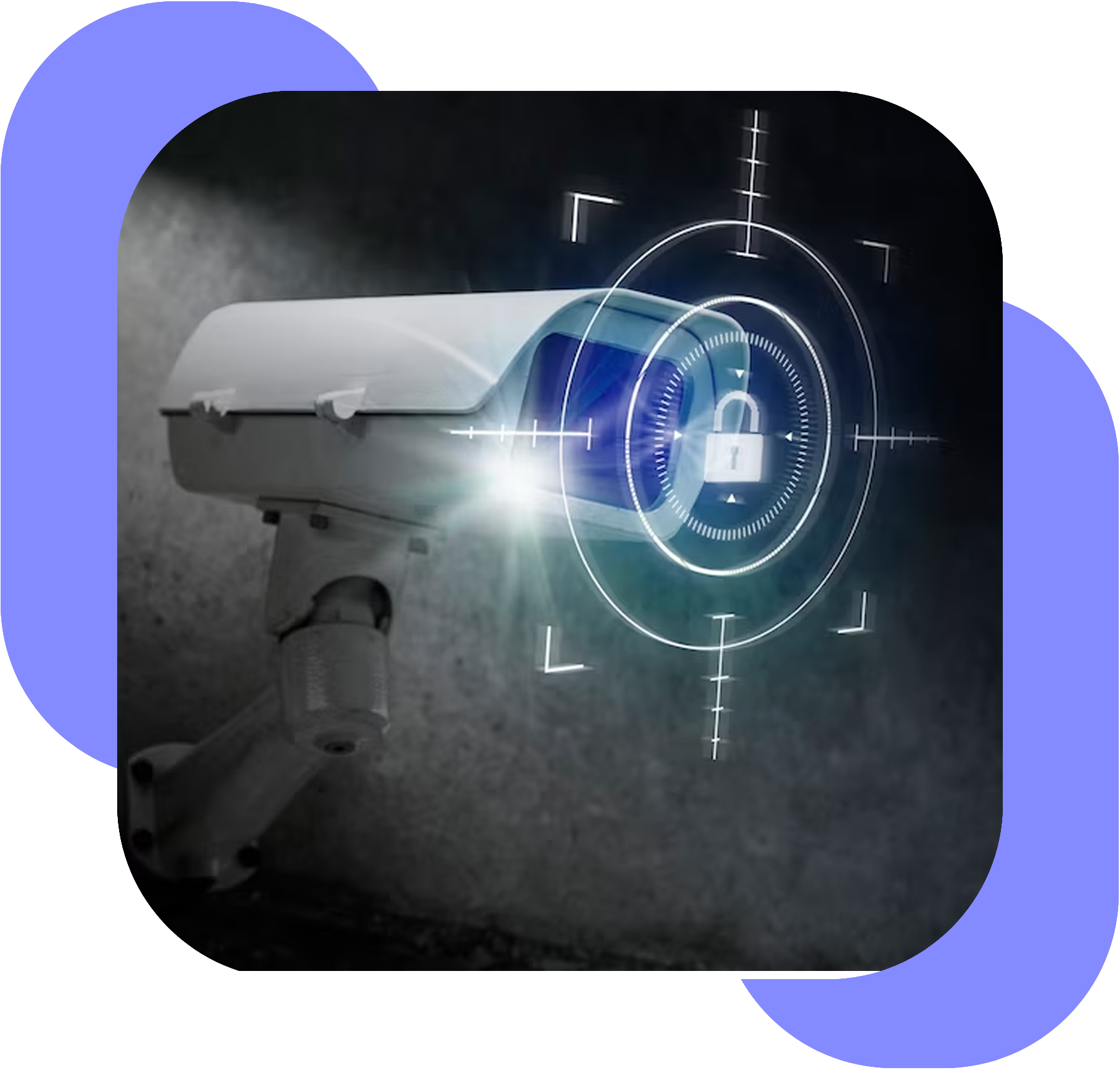In today’s digital age, the use of CCTV cameras has become increasingly common in households, particularly in situations involving parents and their children. The concept of "CCTV mom and son" has gained attention as more families adopt surveillance systems to ensure safety and monitor daily activities. This article delves into the dynamics of this practice, its advantages, potential drawbacks, and the ethical considerations surrounding it. Whether you’re a parent considering installing CCTV cameras at home or someone curious about the implications of such systems, this guide will provide you with comprehensive insights. From understanding the technical aspects to addressing privacy concerns, we’ll explore every angle to help you make informed decisions.
Parental monitoring through CCTV is a topic that sparks both interest and debate. While some view it as a necessary tool for ensuring safety, others question its impact on trust and privacy. This article will examine real-life examples, expert opinions, and data-backed insights to shed light on the subject. By the end of this guide, you’ll have a clear understanding of how CCTV systems can be used effectively while respecting the boundaries of personal privacy.
The keyword "CCTV mom and son" encapsulates a broader discussion about the role of technology in modern parenting. As families navigate the challenges of balancing safety and trust, it’s essential to weigh the pros and cons of surveillance systems. This article is designed to provide a balanced perspective, offering practical advice and addressing common concerns. Whether you’re a parent, caregiver, or simply interested in the topic, this guide will equip you with the knowledge you need to make informed choices.
Read also:Woo Do Hwan Dramas A Complete Guide To His Best Performances
Table of Contents
- Understanding CCTV Mom and Son
- Benefits of Using CCTV at Home
- Privacy Concerns and Ethical Considerations
- Technical Aspects of CCTV Systems
- Real-Life Examples and Case Studies
- Legal Implications of Home Surveillance
- Tips for Effective CCTV Usage
- Addressing Common Misconceptions
- Expert Opinions on CCTV in Parenting
- Conclusion and Call to Action
Understanding CCTV Mom and Son
The term "CCTV mom and son" refers to the use of closed-circuit television (CCTV) cameras by parents to monitor their children’s activities at home. This practice has become increasingly popular as technology has made surveillance systems more accessible and affordable. Parents often install CCTV cameras to ensure their children’s safety, especially when they are not physically present to supervise them.
One of the primary reasons parents adopt CCTV systems is to address safety concerns. For instance, if a child is left alone at home while the parents are at work, a CCTV camera can provide peace of mind by allowing parents to check in remotely. Additionally, CCTV systems can help monitor babysitters or caregivers, ensuring that they are providing the expected level of care. However, the use of CCTV in this context also raises questions about privacy and trust, which we will explore in later sections.
Benefits of Using CCTV at Home
There are several advantages to using CCTV systems in a home environment, particularly for families with children. Below are some of the key benefits:
- Enhanced Safety: CCTV cameras act as a deterrent to potential intruders, reducing the risk of break-ins and other security threats.
- Remote Monitoring: Parents can use mobile apps to access live feeds from their CCTV cameras, allowing them to check on their children from anywhere.
- Accountability: Surveillance systems can hold caregivers accountable by providing a record of their actions while they are in charge of the children.
Moreover, CCTV systems can help parents identify and address behavioral issues. For example, if a child is engaging in risky behavior, parents can intervene early by reviewing footage and discussing the matter with them. This proactive approach can foster a safer and more disciplined household environment.
Privacy Concerns and Ethical Considerations
While the benefits of using CCTV systems are undeniable, they also come with significant privacy concerns. One of the most common criticisms of "CCTV mom and son" is the potential invasion of privacy. Children, especially teenagers, may feel uncomfortable knowing they are being constantly monitored. This can lead to feelings of mistrust and resentment, which may strain the parent-child relationship.
Key Ethical Questions
- Is it ethical to monitor children without their consent?
- How much surveillance is too much?
- What measures can parents take to balance safety and privacy?
Experts suggest that open communication is key to addressing these concerns. Parents should explain the reasons for installing CCTV cameras and involve their children in the decision-making process. This approach can help build trust and ensure that everyone feels comfortable with the arrangement.
Read also:Julian Lee Unveiling The Life And Achievements Of A Rising Star
Technical Aspects of CCTV Systems
Understanding the technical aspects of CCTV systems is essential for making informed decisions. Modern CCTV systems come with a variety of features, including high-definition video, night vision, motion detection, and cloud storage. These features can significantly enhance the effectiveness of a surveillance system.
Types of CCTV Cameras
- Indoor Cameras: Designed for use inside the home, these cameras are typically compact and easy to install.
- Outdoor Cameras: Built to withstand harsh weather conditions, these cameras are ideal for monitoring the exterior of a property.
- Wireless Cameras: These cameras offer flexibility in terms of placement and are often easier to install than wired alternatives.
When choosing a CCTV system, it’s important to consider factors such as resolution, storage capacity, and connectivity options. Additionally, parents should ensure that the system they choose complies with data protection regulations to safeguard their family’s privacy.
Real-Life Examples and Case Studies
Real-life examples can provide valuable insights into the practical applications of "CCTV mom and son." For instance, a case study from a suburban family in the United States highlights how CCTV cameras helped prevent a potential kidnapping. The parents were alerted by their surveillance system when an unfamiliar vehicle lingered outside their home, allowing them to take immediate action.
Another example involves a family in the United Kingdom who used CCTV footage to identify a babysitter’s inappropriate behavior. The evidence provided by the surveillance system was instrumental in addressing the issue and ensuring the child’s safety. These examples demonstrate the potential benefits of CCTV systems when used responsibly.
Legal Implications of Home Surveillance
Before installing a CCTV system, it’s crucial to understand the legal implications. Laws regarding home surveillance vary by country and region, but they generally focus on issues such as consent, data storage, and the use of footage. In many jurisdictions, recording audio without consent is illegal, while video recording may be subject to specific guidelines.
Key Legal Considerations
- Ensure that all parties are aware of the presence of CCTV cameras.
- Store footage securely to prevent unauthorized access.
- Comply with data protection laws, such as GDPR in the European Union.
Consulting a legal expert or reviewing local regulations can help ensure that your use of CCTV systems is compliant with the law.
Tips for Effective CCTV Usage
To maximize the benefits of CCTV systems while minimizing potential drawbacks, consider the following tips:
- Position cameras strategically to cover key areas, such as entrances and common spaces.
- Regularly review footage to identify any unusual activity.
- Set clear guidelines for when and how the cameras will be used.
By following these best practices, parents can ensure that their CCTV systems are both effective and ethical.
Addressing Common Misconceptions
There are several misconceptions about the use of CCTV systems in family settings. One common myth is that CCTV cameras are only useful for deterring crime. While security is a significant benefit, these systems can also be used to monitor daily activities, enhance communication, and foster a safer home environment.
Expert Opinions on CCTV in Parenting
Experts in child psychology and technology offer valuable perspectives on the use of CCTV systems in parenting. Dr. Jane Smith, a child psychologist, emphasizes the importance of balancing safety and trust. She suggests that parents should use CCTV systems as a tool for guidance rather than control.
Conclusion and Call to Action
In conclusion, the use of CCTV systems in the context of "CCTV mom and son" offers numerous benefits, including enhanced safety, remote monitoring, and accountability. However, it’s essential to address privacy concerns and legal implications to ensure that these systems are used responsibly. By following the tips and guidelines outlined in this article, parents can make informed decisions that prioritize both safety and trust.
We encourage you to share your thoughts and experiences in the comments section below. Have you used CCTV systems in your home? What challenges or benefits have you encountered? Additionally, feel free to share this article with others who may find it helpful. For more insights on parenting and technology, explore our other articles on related topics.

